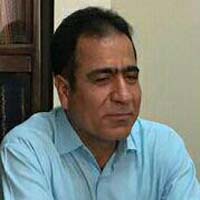A Reflection the Philosophical Aspects of Reading and Writing in the “Philosophy for Children” Program with a Focus on Suki and Pixie and their Guidebook
Author(s):
Article Type:
Research/Original Article (دارای رتبه معتبر)
Abstract:
The current study aimed to investigate the philosophical aspects of reading and writing in the “Philosophy for Children” program according to the Suki and Pixie novels and their guidebooks. A descriptive-analytical methodology was applied to answer what are the philosophical aspects of reading and writing in the “Philosophy for Children” program according to the two novels, and what skills can be implemented to enhance those aspects. The findings showed that the philosophical aspects of reading and writing include philosophizing, the role of dialogues in reading and writing, reading as an argument, critical reading, the relationship between art and experience, meaning, aesthetic relationships, attention, experience, preferences, and veracity. These aspects can be strengthened by such skills as providing reasons, dialogues, argumentations, the recognition of parts and wholes, general concepts, discovering vague areas and gaps, definitions, connecting, developing concepts clearly, stating experiences, and distinguishing. The findings showed that a mutual relationship[1] exists between reading and argumentation, and this can lead to the enhancement and development of high-level thoughts.
Keywords:
Reading , writing , philosophy for children , Suki , Pixie
Language:
Persian
Published:
نشریه تفکر و کودک, Volume:13 Issue: 1, 2022
Pages:
1 to 34
https://www.magiran.com/p2505362
سامانه نویسندگان
مقالات دیگری از این نویسنده (گان)
-
A Philosophical Exploration of Dramaturgy as an Educational Approach: Examining Roles and Proposing Improvements for the Teacher Education System
Mohammad Faghedi *, Alireza Mahmmudnia, Ramazan Barkhordari, Yahya Ghaedy
Journal of Technology and Scholarship in Education, -
Designing the Elementary School Science Curriculum based on Bhaskar's Transcendental Realism
Yunes Amirahmadi *, Saeid Zarghami-Hamrah,
Journal of Theory and Practice in Curriculum,



